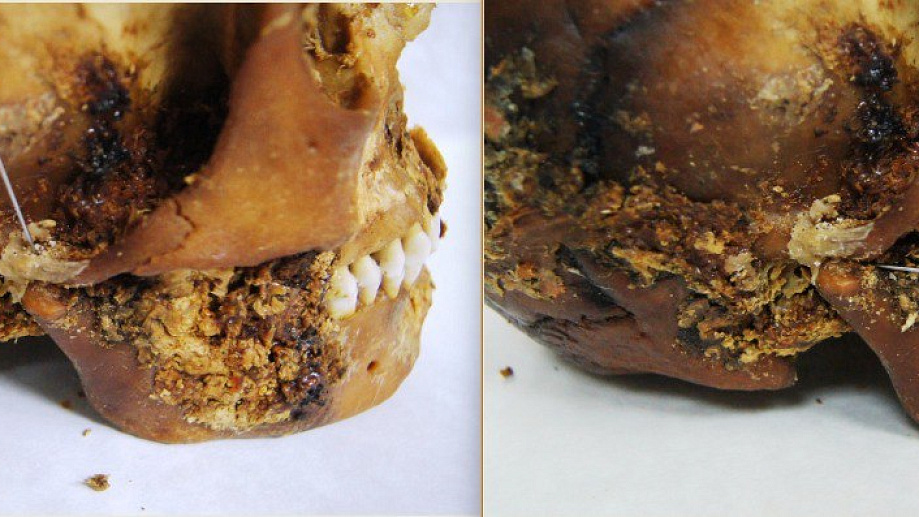Food Tastes Boring to Anorexics

Get the world’s most fascinating discoveries delivered straight to your inbox.
You are now subscribed
Your newsletter sign-up was successful
Want to add more newsletters?

Delivered Daily
Daily Newsletter
Sign up for the latest discoveries, groundbreaking research and fascinating breakthroughs that impact you and the wider world direct to your inbox.

Once a week
Life's Little Mysteries
Feed your curiosity with an exclusive mystery every week, solved with science and delivered direct to your inbox before it's seen anywhere else.

Once a week
How It Works
Sign up to our free science & technology newsletter for your weekly fix of fascinating articles, quick quizzes, amazing images, and more

Delivered daily
Space.com Newsletter
Breaking space news, the latest updates on rocket launches, skywatching events and more!

Once a month
Watch This Space
Sign up to our monthly entertainment newsletter to keep up with all our coverage of the latest sci-fi and space movies, tv shows, games and books.

Once a week
Night Sky This Week
Discover this week's must-see night sky events, moon phases, and stunning astrophotos. Sign up for our skywatching newsletter and explore the universe with us!
Join the club
Get full access to premium articles, exclusive features and a growing list of member rewards.
Food tastes more bland and boring to anorexics than it does to people without eating disorders, finds a new study.
Furthermore, the inability to enjoy food might last even after people recover from the disease.
Outwardly, anorexia nervosa manifests as a relentless pursuit of thinness and emaciation to a weight that's at least 15 percent below normal. In extreme cases, it can lead to death. But whether the disorder is also linked with inner changes, such as alterations to portions of the brain that regulate appetite, has been a mystery.
Now, brain-scanning research, recently published online in advance of publication in the journal Neuropsychopharmacology, reveals that compared with individuals without an eating disorder, women with anorexia have distinct differences in the insula, a brain region important for recognizing taste.
Tasteless tests
Angela Wagner of the University of Pittsburgh School of Medicine and Walter Kaye, also of Pitt, and the University of California, San Diego School of Medicine, scanned the brains of 16 women who had recovered from anorexia nervosa and of 16 women without an eating disorder.
They measured brain activity in response to sucrose (considered a "pleasant" taste) and distilled water (considered "neutral").
Get the world’s most fascinating discoveries delivered straight to your inbox.
In response to both water and sugars, women who had recovered from anorexia showed significantly less activity in the insula and related brain regions compared with the control group of women. These brain regions recognize taste and judge how rewarding that taste is to the person.
Food aversion
Kaye says the results suggest individuals with anorexia might have trouble recognizing tastes or responding to the pleasure associated with food.
In addition, the insula contributes to a type of emotional regulation, referred to as interoception. This raises the possibility that anorexics might find food aversive rather than rewarding, the researchers suggest.
“We know that the insula and the connected regions are thought to play an important role in interoceptive information, which determines how the individual senses the physiological condition of the entire body,” Kaye said. “Interoception has long been thought to be critical for self-awareness because it provides the link between thinking and mood, and the current body state.”
The results could shed light on why anorexics steer clear of “pleasurable” foods, and why they don't eat even when hungry, leading to the life-threatening plunge in weight. Other symptoms of anorexia nervosa, such as distorted body image and lack of desire to get better, could also be associated with these brain regions, they say.
The research was funded by the National Institute of Mental Health and the Price Foundation.
- Top 10 Mysteries of the Mind
- Quiz: What's Your Nutrition IQ?
- 10 Easy Paths to Self Destruction
Jeanna Bryner is managing editor of Scientific American. Previously she was editor in chief of Live Science and, prior to that, an editor at Scholastic's Science World magazine. Bryner has an English degree from Salisbury University, a master's degree in biogeochemistry and environmental sciences from the University of Maryland and a graduate science journalism degree from New York University. She has worked as a biologist in Florida, where she monitored wetlands and did field surveys for endangered species, including the gorgeous Florida Scrub Jay. She also received an ocean sciences journalism fellowship from the Woods Hole Oceanographic Institution. She is a firm believer that science is for everyone and that just about everything can be viewed through the lens of science.
 Live Science Plus
Live Science Plus










